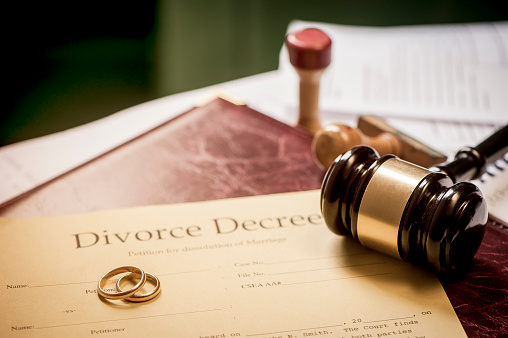
Resource Hub – Articles/Blog
How to File an Online Divorce Application Form
Many people find it more convenient to fill out electronic forms compared to a hard copy. The Australian family law accepts divorce applications that are submitted electronically. Applicants can fill out a form for filing for divorce online and submit it through the electronic portal along with the fee and the necessary accompanying documents.
The online submission process has been made easier to facilitate the applicants. For the most part, the online form has exactly the same questions as the hard copy. However, it is more convenient to fill out due to some special features. One such feature is the validation feature. This feature notifies the applicant if he or she has skipped any question before moving on to the next page. This minimise s the risks of filing an incomplete form.
Secondly, the online form only presents questions that are relevant to the applicant. This saves a lot of time that would otherwise have been spent in going over every question on the form. The online form also provides pointers i.e. information to help the applicant provide complete and accurate responses.
The applicant can easily save the completed divorce application in the form of a PDF file on computer. The applicant can then submit the form electronically through the web portal of the Commonwealth Courts. Some of the necessary document can also be filed electronically. At the same time, the form is also saved automatically on a separate database from where it is automatically deleted after two months.
No separate charges are applied on filing the divorce application electronically. Only the standard prescribed fee for filing an application for divorce needs to be paid by the applicant. All efforts have been taken to make the process of filling out and submitting the online application smooth and hassle-free. However, the family law registry is open to provide a complete divorce kit that answers any particular queries and problems experienced by the applicants.
When to File an Application for Divorce in Australia
In Australia, the law allows an application for divorce to be filed only after it becomes clear that the marriage has broken down and there is no chance of reconciliation between the partners. Whether the marriage has broken down to this point or not is being ascertained by the period over which the partners have been separated. Usually this period is of 12 months. The partners may either be separated for a continuous period of twelve months or for periods that amount to 12 months in total. However, in the latter case, it is necessary that any reconciliation should not have lasted for than three months.
The next question to be considered is who can file an application for divorce. Under Australian family law, any one partner or both can file an application for divorce in the Family Court. It is not mandatory for both the partners to want divorce. Either partner may file a divorce application for any marriage that took place within Australia or as long as any one partner is an Australian citizen or is domiciled in Australia. If neither of the above conditions exists, then the partner needs to have been an Australian resident for at least one year to be eligible for filing a divorce application.
Either partner is free to file a divorce application at any time once the separation period of twelve months elapse. Once the application has been filed, it generally takes almost eight weeks for the hearing to begin. It is difficult to estimate how long the proceedings may last before a judgment is reached. However, if no custody of children or divorce property issues are involved, and the partners agree to the divorce, the proceedings are concluded without any unnecessary delays. The decree nisi is issued at the hearing, which is followed by the decree absolute one month later to confirm the divorce.
online-divorce.com.au
Are you wishing to apply for divorce?
Mathews Family Law provides a unique online divorce application service.
Simply submit the easy-to-complete application form and one of our team of specialist solicitors and divorce law lawyers will personally manage your divorce for you.
Hassle-free.
Easy.
Cheap.
Australia wide.
Let us do the worrying for you.
Federal Circuit Court of Australia: http://www.federalcircuitcourt.gov.au/wps/wcm/connect/fccweb/home
How to Choose a Divorce Lawyer in Australia

Choosing a divorce lawyer in Australia should be like making any other big Should be divorce process like when you buy a house or choose a school for your children. Educate yourself, ask around, ask questions, and research on the internet.
Learn about the divorce laws first. This is important for two reasons. One, it will give you an idea of what’s involved, which in turn gives you a better sense of control. The second reason is that it means you’re better informed, so when you start looking for a lawyer, you’ll better understand what he or she is talking about.
Do your research.
Ask friends and family, call your local law society, ask others who have been through a divorce, and search the internet. Build up a list of names, including lawyers people recommended not to use.
Figure out what kind of lawyer you need.
Ask yourself what kind of person you want to work with. Are you looking for an aggressive fighter who will get you everything you want and win the battle or do you want someone who can get results with a more gentle approach? Do you need someone who will explain everything to you each step of the way or do you prefer to let go and leave the whole burden to the lawyer?
Narrow down your list.
Do some background checking on the names you received. Look them up on the internet. If he or she wrote any articles or papers, read them. This will give you a sense of who this person is and their knowledge of the field. Ask other people who used the lawyer. A few bad recommendations should tell you not to hire this person.
Choose a family lawyer.
Family law is a very specialized area. Your brother’s best friend might be an amazing criminal lawyer, but that’s not too helpful when you have a parenting dispute with your former spouse.
Start with a phone call
You can learn a lot just from that first call. How long does it take for the lawyer to call you back? How does the lawyer treat you on the phone? Use this opportunity to ask about fees. You might discover immediately that their price is too high for you. If you decide you do want to meet them, find out if they charge for an initial meeting. Most lawyers do charge for a first consultation.
Interview before you hire.
Set up appointments with the lawyers who sound right. Look at this as a job interview – where you are the employer. How are you treated during the interview? Is the lawyer answering calls or checking emails? Is he slandering other lawyers, or worse, other clients? Do you feel you can confide in this person? Sometimes a first read is not correct, but sometimes it’s good to go with your gut feeling. You know what works for you.
Consulting with other experts.
Family law requires knowledge in other fields, such as business, wills, estates, etc. Does the lawyer have other professionals to consult with? You want your lawyer to give you a full picture of the situation and the possible outcomes. Broader knowledge may be required.
When you choose, get it in writing.
An agreement should include what the lawyer’s work will include and his or her fees. Does he work hourly or by the case? What about additional fees or changes in circumstances? Emergencies?
What is your lawyer’s role during divorce mediation?
When you attend mediation, the mediator is the person who runs the show, so to speak. The mediator works with both sides in helping the parties come to an agreement. But just because the mediator is driving the settlement negotiations, your lawyer still has an important role.
Prepare
First, your lawyer will need to prepare for mediation. This entails meeting with you to discuss the process, preparing a file with all important and necessary documents to bring to the mediation, and exchanging documents with the opposing party. Even though the lawyer is not the one who will lead the negotiations, the lawyer still must come to the mediation prepared to advocate on your behalf.
Advocate
Your lawyer will need to be your advocate at mediation. Your lawyer will help you explain your case to the mediator, and will make sure that your wishes are being clearly expressed to the mediator. If you forget to tell the mediator a pertinent fact or detail, your lawyer will be sure to make sure that said detail is mentioned.
Advise
Your lawyer will be your advisor at mediation. While a mediator can tell you how the law works, and can suggest a certain path, you will still want your lawyer present to advise you on whether a proposed agreement is in your best interest. If it seems like the parties are too far apart with regard to reaching an agreement, your lawyer may advise that the mediation cease.
So while the parties and the mediator are front and center, so to speak, at mediation, your lawyer also has a significant role as well.
What Does a Divorce Kit Contain?
The divorce kit provides all the information that an applicant needs to file for divorce in Australia. The divorce kit outlines the steps one needs to take to apply for a divorce. It also provides the application form to be filled in by the applicant. There is no standard format of the divorce kit as it is provided in a number of different formats. The applicant can choose the one that best suits their needs after consultation with a divorce lawyer.
The divorce kit also provides an online version of the application form that needs to be printed out after it has been filled in by the applicant and then submitted to the Federal Magistrates Court. The Federal Magistrates Court Rules provide that the application form be printed on one side of the sheet only. The kit also specifies the fees that the applicant needs to pay at the time they submit the application form with the Federal Magistrates Court. The kit also specifies the instances where the applicant may be entitled to a reduction in the divorce fee. The law allows for the payment to be made in cash as well as via cheques, money orders and credit card.
In addition to the above, the divorce kit also contains information about the process to be followed during court hearings and how the outcome of the application is being determined. Applicants can use the application form to fill in details of up to four children. Applicants who have more than four children can use the special attachment form that comes with the divorce kit. Finally, the online application form can also be submitted electronically through the portal of the Commonwealth Courts. The divorce kit is an indispensable tool for divorce applicants and may be the best source of information on how to get a divorce in Australia.
‘Breaking Up Is Hard To Do’ – MFL and Accountants Working Together

The team at MFL has been busy presenting seminars to CPA and IPA accountant discussion groups. We’ve appreciated the opportunity to speak with other professionals providing expert advice to clients moving through the divorce process in Australia. The discussions have been lively with lots of questions and hypotheticals canvassed. Thanks for having us!
Dealing with Special Circumstances in Australian Divorce Law

The Australian family law is unique in a way that it does not require the divorce applicants to prove the fault of any partner. This is called a no-fault divorce. All that is required is that the partners have been separated for a period of 12 months and that there are no chances of their getting back together. It is also not necessary for a joint divorce application to be filed. Australian family law allows either partner or both jointly to file an application for divorce.
The court needs to be certain that the marriage has broken down irretrievably and that there is no hope for reconciliation at all. This requirement is particularly acute if the partners have been married for a period under two years. To ensure that the partners are not getting a divorce in haste, the court requires a certificate signed by a counseling agency to be filed with the divorce papers. This certificate attests that the partners have sought counseling as a means to seek reconciliation before applying for a divorce process in Australia. Similarly, if either spouse cannot be traced, the applicant can pursue the divorce application as long as they demonstrate that they have made efforts to locate the untraceable spouse.
Usually, the divorce proceedings do not take much time if there are no minor children involved. However, if the custody of children under 18 is an issue, then the applicants need to demonstrate that they have made adequate arrangements for the care of their children after the divorce. More so, unless a joint application is made by both partners, the applicant needs to be present at the hearing if there are children under 18 involved.
If either partner wishes to oppose an application of divorce filed by the spouse, he or she may file a response to the divorce application or a response to the jurisdiction if they feel that the divorce has not been filed in the right jurisdiction.
‘Special Contributions’ and Divorce

Your client who is going through a matrimonial/de facto property settlement may say to you that their particular contribution to the accumulation of the asset pool was ‘special’, by which they mean that:
- They made a greater contribution than their partner;
- They should receive a greater share of the asset pool.
In this article, we review the current law on ‘special contributions’ and how you might respond to your client’s claim.
The second step of the ‘4 Step Process’ for determining how the assets of the marriage ought to be divided between the parties includes consideration of the contributions of the parties.
Contributions may be:
- Financial, to the acquisition, conservation or improvement of property
- Non-financial, to the acquisition, conservation or improvement of property
- Welfare and homemaking, to the relationship and the children of the relationship.
A party may claim that they made a ‘special’ direct financial contribution which warrants them receiving a greater share of the asset pool.
Examples of ‘special contributions’ include contributions made by:
- An inheritance
- A ‘good’ business person
- An entrepreneur
- A successful artist
- A specialist surgeon.
The existence of a ‘Doctrine of Special Contribution’ was recently reviewed, and rejected, in the decision in Kane v Kane by the Full Court of the Family Court [2013].
The parties had been married for 30 years. The issue in dispute was the weight to be given to their respective contributions to their self-managed superannuation fund. The husband sought a greater share of the fund based on his ‘special contributions’, being ‘the application of his acumen to investment decisions which caused the fund to prosper’ (from $540,000 in 2008 to $1,850,000 in 2012). The husband, with the wife’s consent, purchased shares using matrimonial savings. The shares were registered separately in the name of the husband or the wife, with different rates of growth in their respective portfolios. The husband asserted that this separation evidenced the parties’ shared intention to benefit individually and not collectively, from their respective portfolios only. The wife asserted that the husband had merely invested their savings and they should benefit equally in the overall growth. The husband took principal responsibility for the investments and the wife was content with this (not unusual) arrangement although in evidence she conceded that she was unenthusiastic about the husband’s wish to invest in a particular share purchase. The husband asserted that he carefully researched each investment before deciding to purchase and that the success of the investment was due to his judgment and not mere chance or a random lottery win.
The trial judge held that ‘the evidence in the present proceedings permits a rational conclusion that the acquisition of those shares was no fluke. The husband’s diligent research of that corporation and his decision to invest the parties’ funds in it was an inspired investment decision, manifesting considerable expertise. His decision is all the more remarkable given that he knew he was making that investment decision without the support of his wife. I am satisfied that, without the husband’s skill in selecting and pursuing the investment in Company 1 shares, the parties’ superannuation interests within R Investments would currently be worth substantially less. It follows that the husband’s contributions to those superannuation interests were substantially greater than those of the wife. I reject the wife’s submission that her contributions were equal to those of the husband. The real difficulty is evaluating the parties’ contributions in mathematical terms.
The trial judge split the funds’ two-thirds to the husband and one-third to the wife.
On appeal by the wife to the Full Court of the Family Court, it was held that the trial judges’ disproportionate division of the Fund could not be justified.
On the claim of ‘special contribution’ by the husband, His Honor Deputy Chief Justice Faulks stated:
- The Family Law Act does not refer to ‘special’ or ‘extraordinary’ contributions
- `Special skills … will not always produce significant financial results. An academic may be brilliant and possess exceptional or special skills which require much work and effort to apply, but which may nevertheless not reflect in the … property of the parties’
- `A range of highly specialized practical skills may not produce an economic return equivalent to the return produced by the entrepreneurial skills or a newspaper magnate’
- It is difficult to correlate effort or skill (even if special) with results. Frequently, the financial result of a contribution (whether by physical or intellectual labor or imagination foresight and perspicacity) will be influenced by external factors beyond the control of the party contributing’.
Family lawyers now have the benefit of a very clear message from the Full Court of the Family Court:
- There is no such thing as a ‘Doctrine of Special Contribution’
- The totality of the contributions to the asset pool must be considered
- An asset pool ought not to be divided merely on the basis of a ‘special contribution’ having been made by one of the parties
- No one contribution to an asset pool should be given greater weight than other contributions.
The rejection of the existence of a ‘Doctrine of Special Contribution’ will be most keenly felt by parties with a high-value asset pool which they believe is the result of their ‘special contribution’ over and above the other parties’ contributions.
Family law property matters are complex, and can always benefit from expert advice from a specialist solicitor. Get in touch with Mathews Family Law, and speak with a divorce law and property lawyer to assist you with your separation or divorce.











